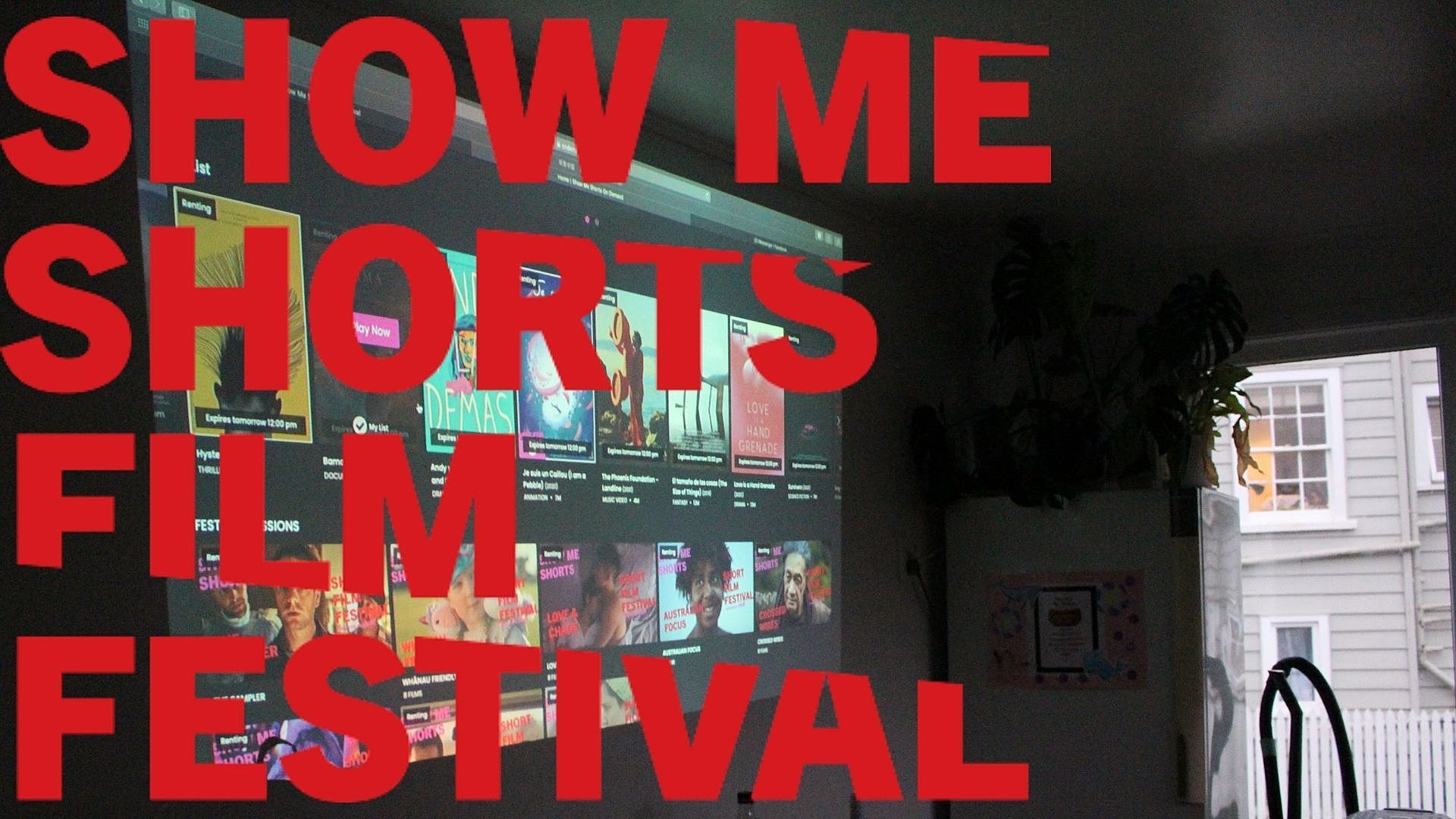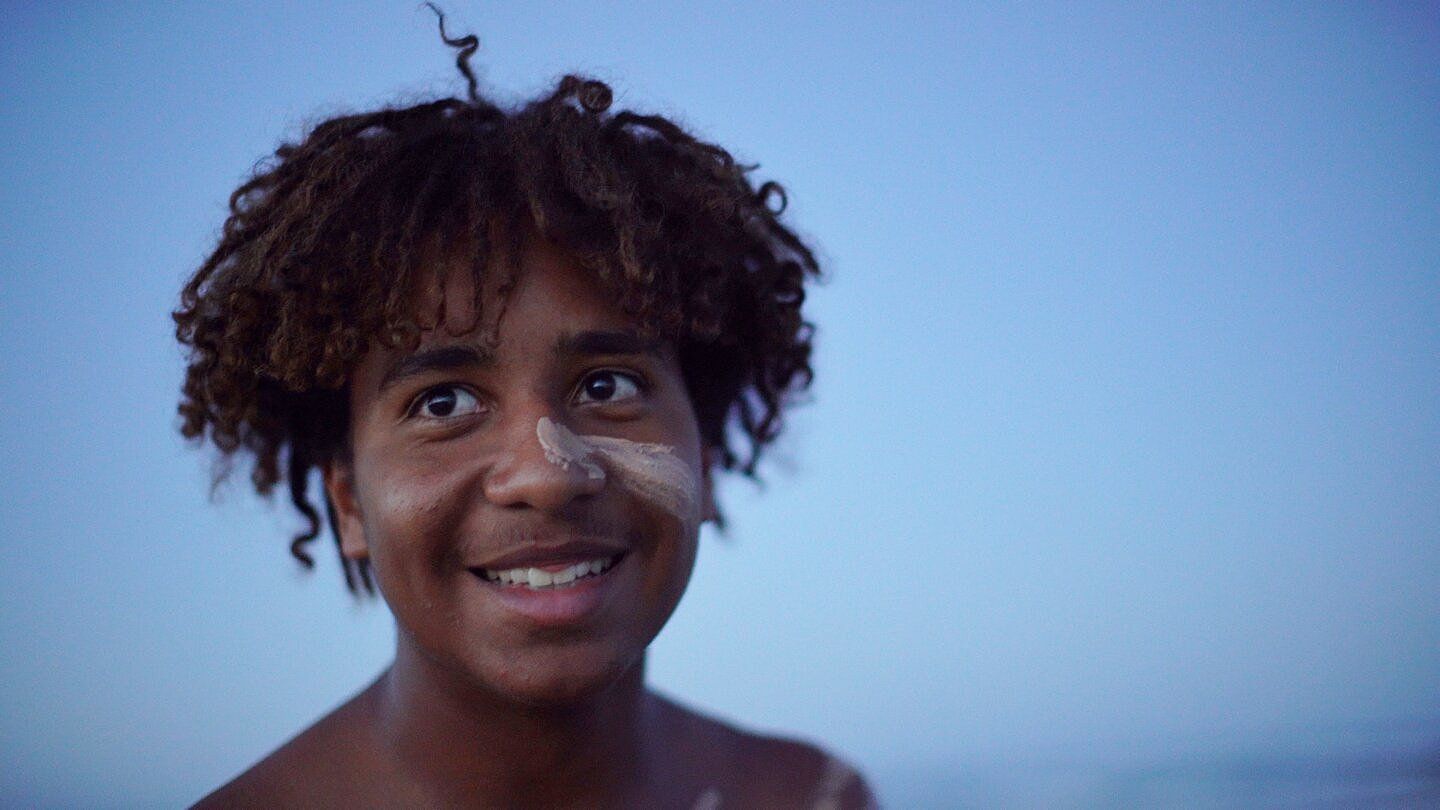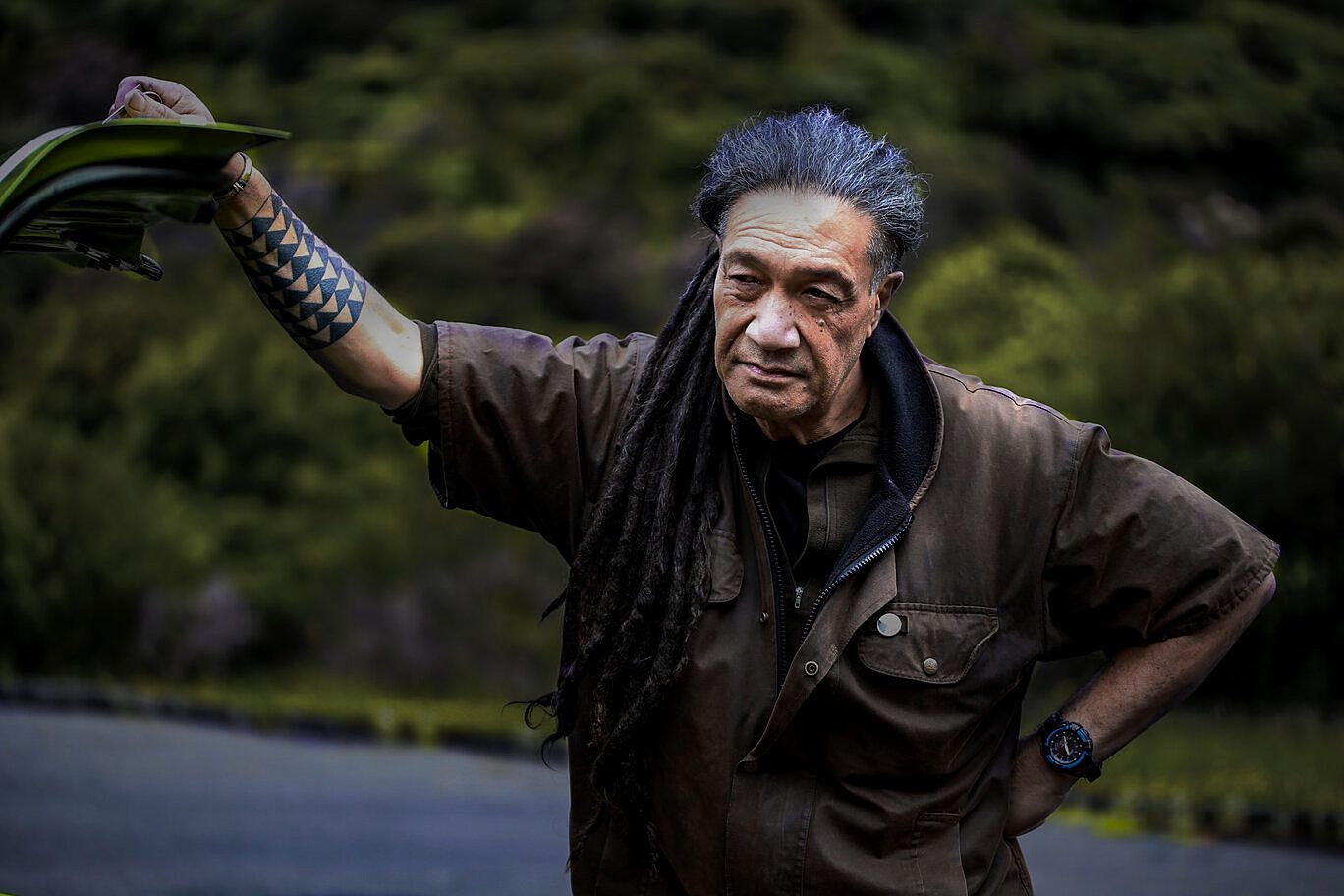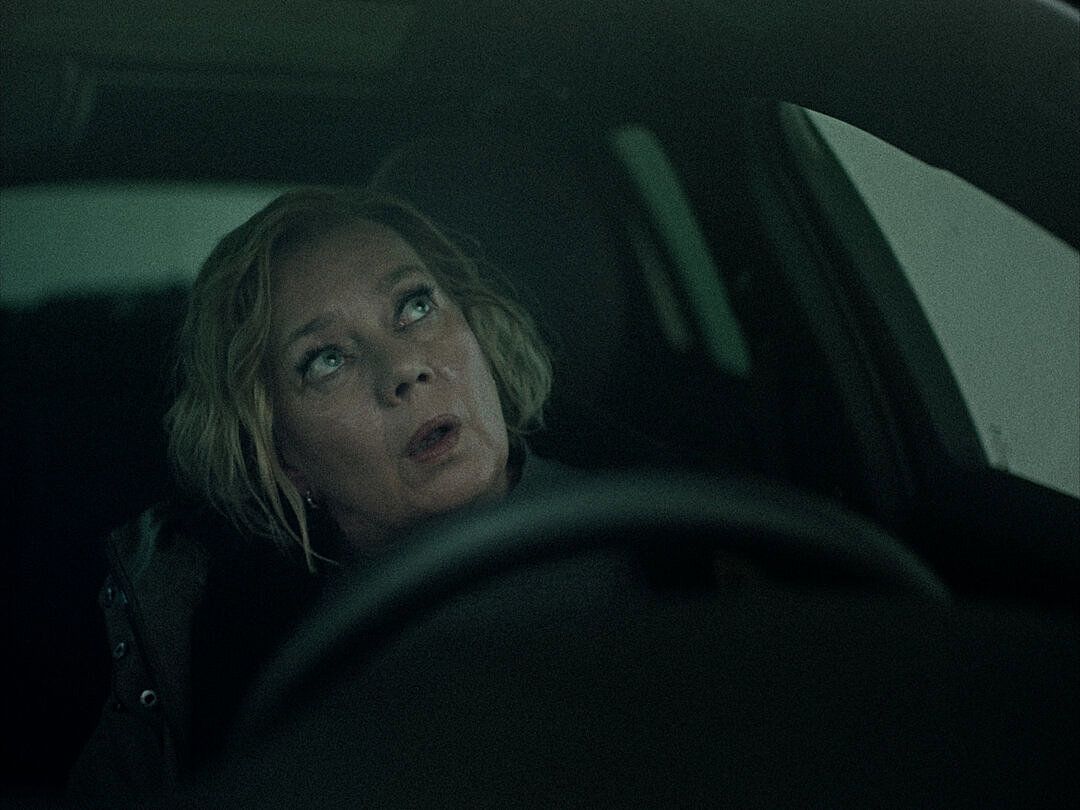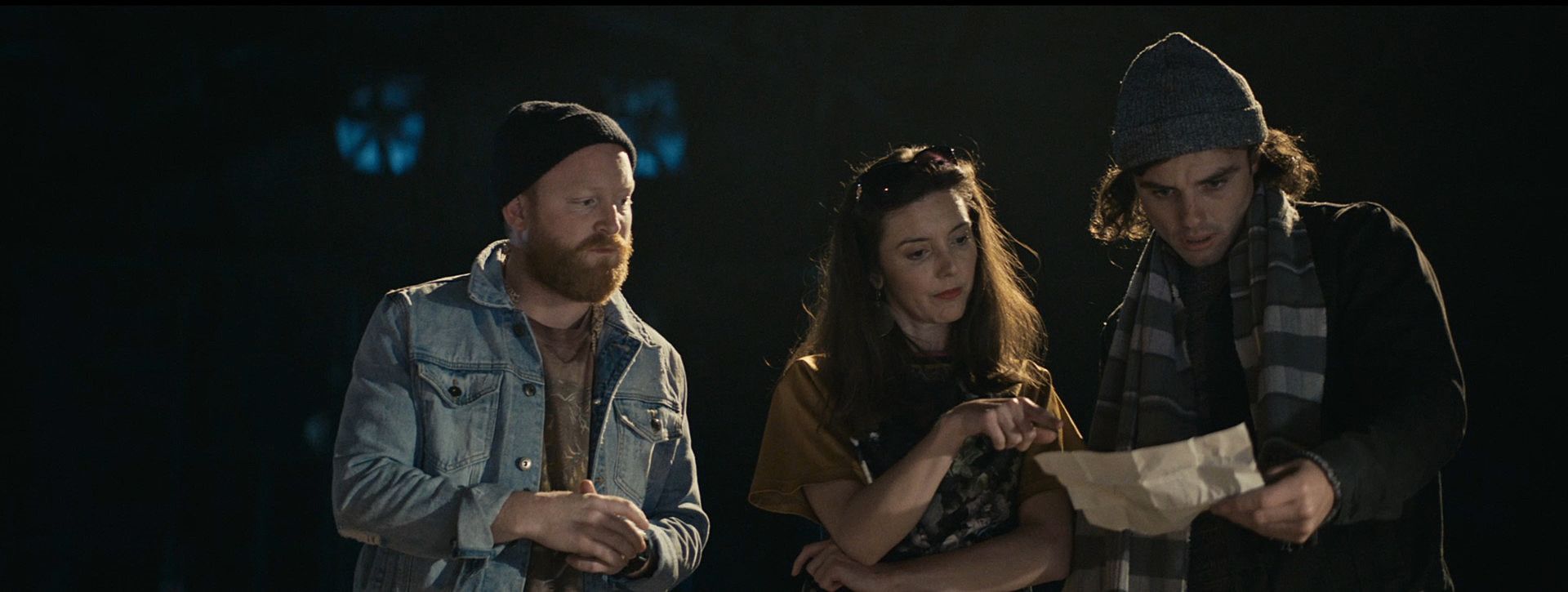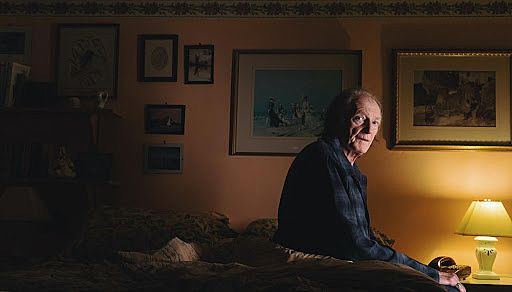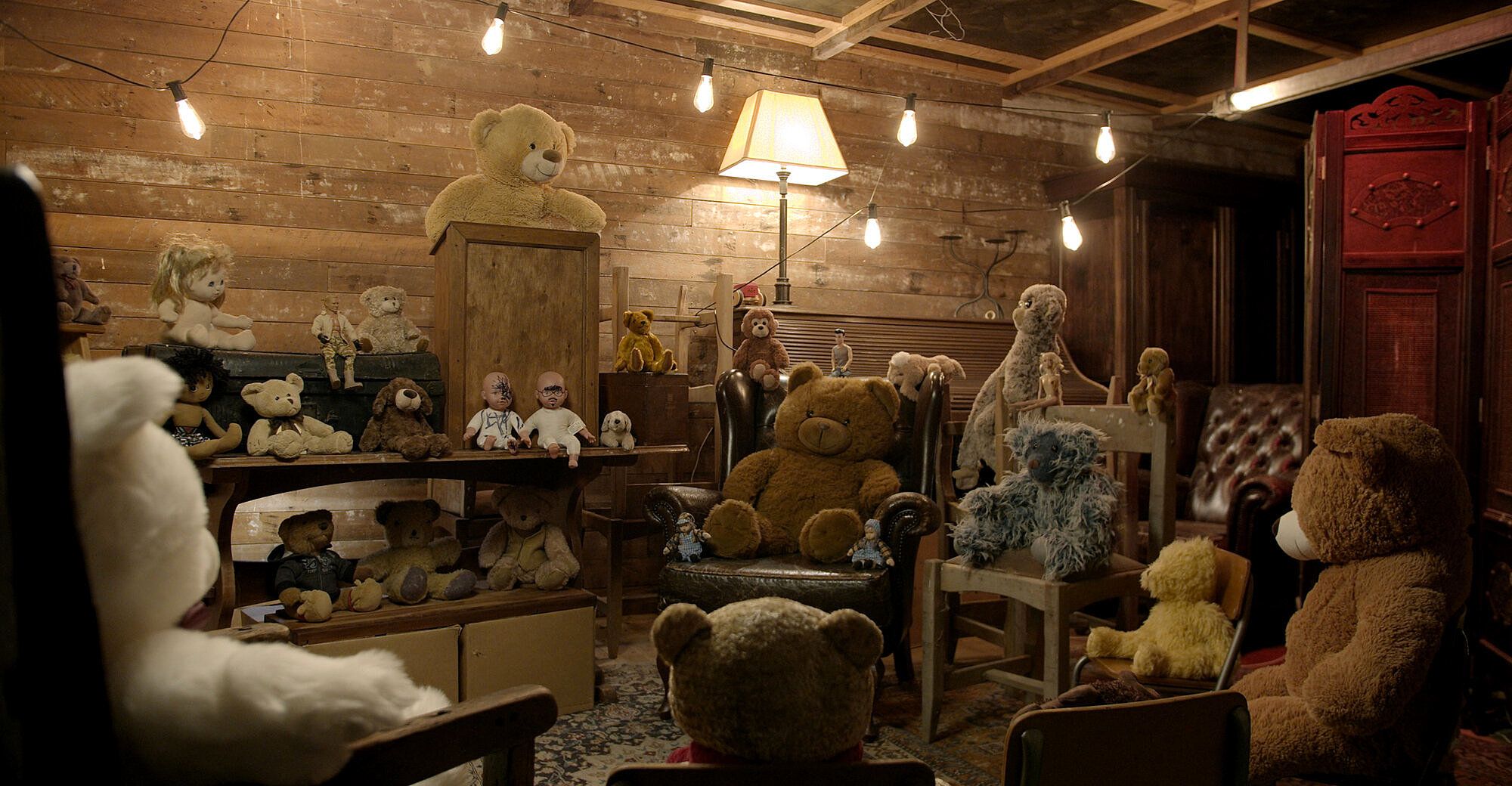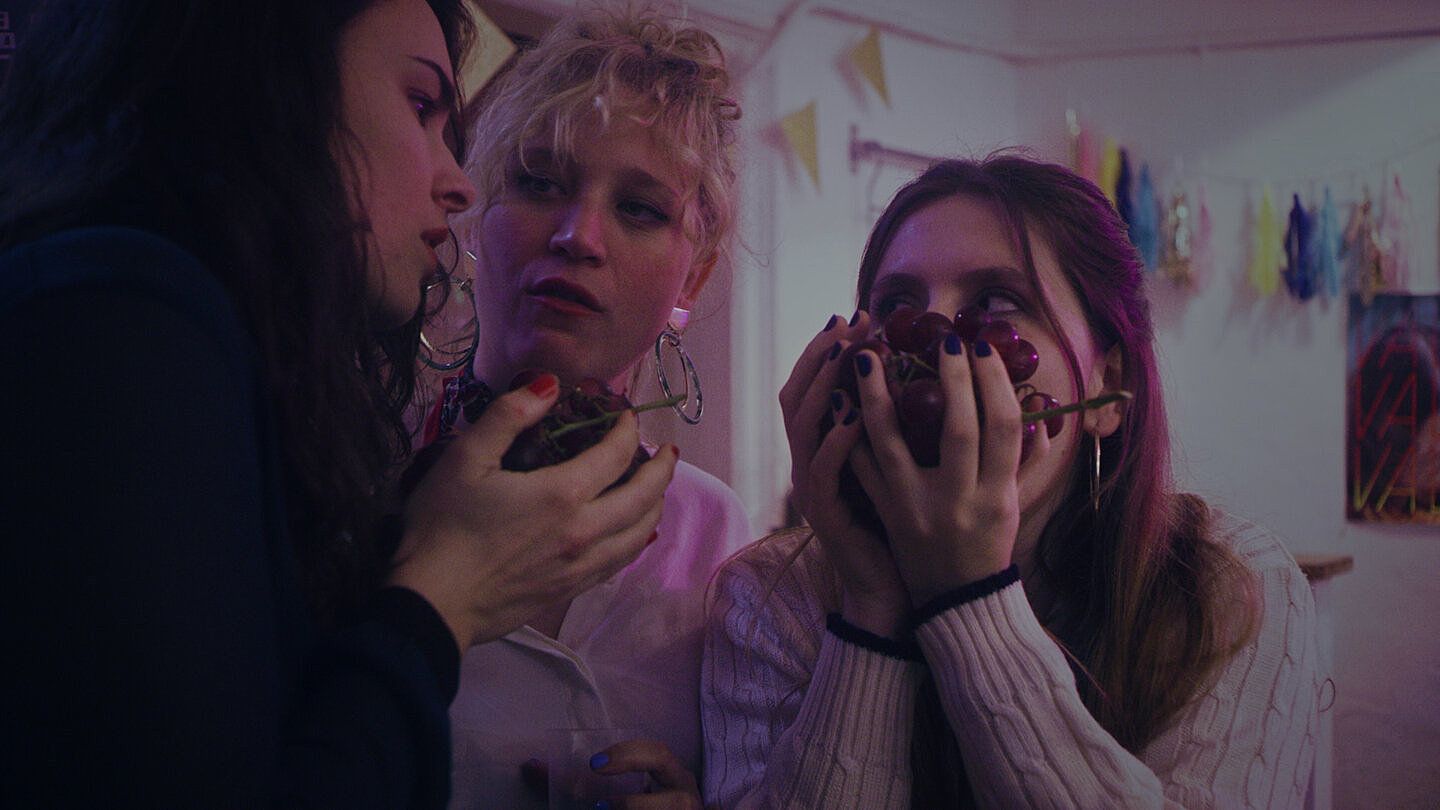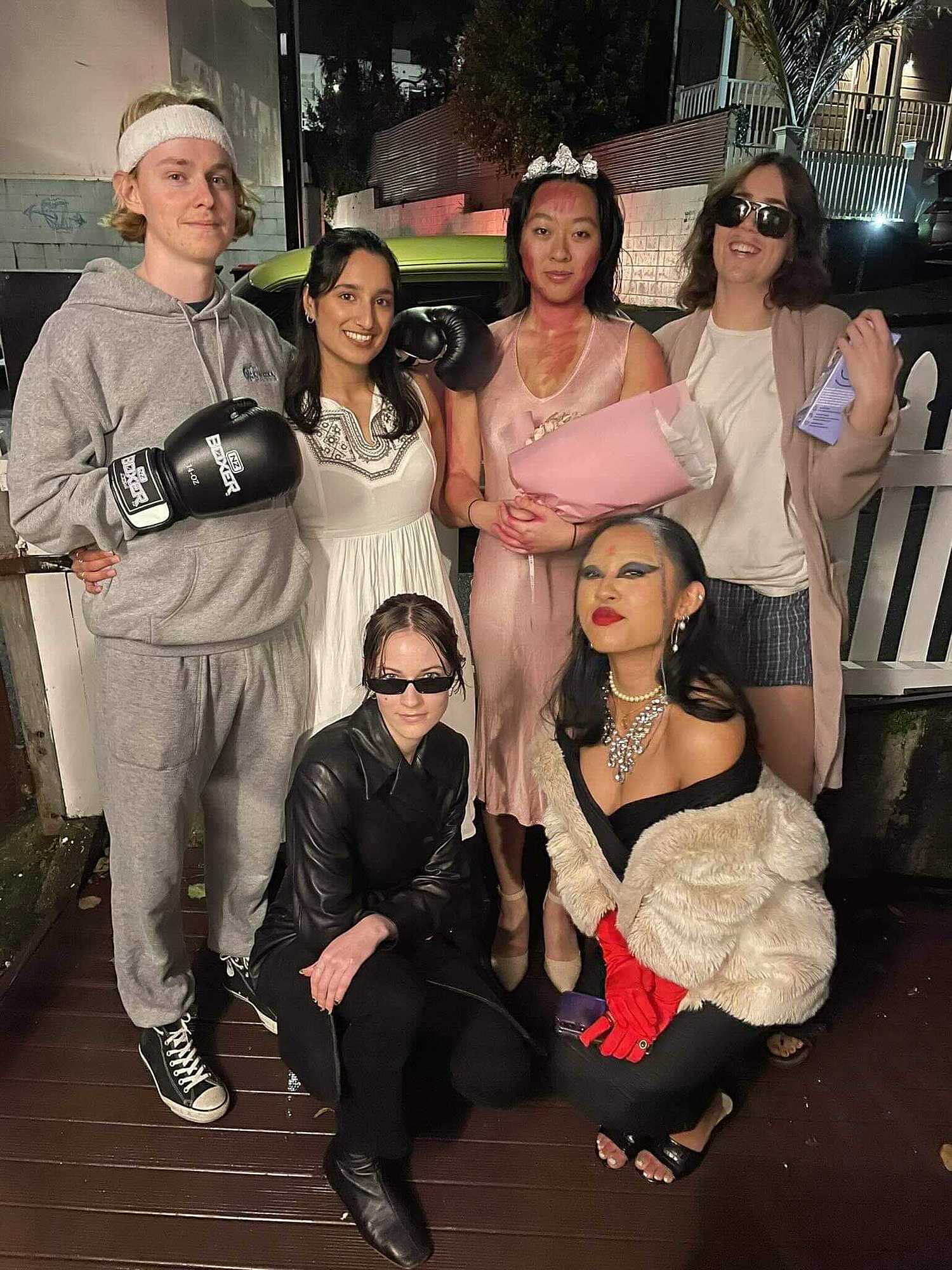Film Festival at Home
An eclectic mix of budding film reviewers takes up the challenge set by the Show Me Shorts Film Festival to have a film fest in their lounge.
Like many other film festivals, Show Me Shorts had to quickly pivot to the online space amidst the 2021 Covid-19 lockdowns. We wanted to do our bit at The Pantograph Punch to keep the movie magic alive, so we invited a flat of students to hold their own Film Festival In Your Living Room. Our budding film reviewers set up a projector on the wall, laid out a few bowls of chips, ordered far too many pizzas, and got ready to let out a few tears.
*
An eclectic mix of films and flatties, the festival certainly had something for everyone. Thanks to our film aficionados/tired law students Bronnie Wilde, Devika Ratanpal, Deb Rawson, actual film student Madeleine Crutchley, writer and English student Naomii Seah and musician Benjamin Mollison. Sherry Zhang, Communications Manager at The Pantograph Punch, theatre maker and law student, completes the reviewing roundup.
*
A constant theme throughout the night was,“I’m going to cry!” “OMG, Bronnie’s already crying?!” and “There’s literally so much in short films. Like that did not feel like seven minutes. So why the fuck is The Avengers so long?”
Perks of an at-home film festival meant we could pause it when we inevitably spilled a bottle of wine. However, when the wifi carked it in the most tense and heart-wrenching moments, we had to scramble to reconnect it.
We didn’t manage to watch all 75 short films from 22 different countries, but we tried our best to pick a diverse range, along with a focus on New Zealand films. These are a few of our picks:
Blue Lake
(Writer/Director: Anya Tate-Manning; Producer: Maddy Maxwell)
Comedy, 11 mins, NZ
Blue Lake
Monster-hunting YouTube sensations Phil and Angie are on the road again, searching to uncover Otago's supernatural secrets. An eerie trip to Blue Lake could finally get them on the cover of the Otago Daily Times, or maybe in the obituaries.
Sherry Zhang: Blue Lake indulges in showing off Otago’s scenery without veering into cheesy tourism video. It made more than a few of us want to escape Tāmaki Makaurau and hunt monsters in the South. I could watch Chris Parker (Phil) and Olivia Parker (Angie) bicker in the car for hours. Their chemistry and comedic delivery is just – chef’s kiss.
Bronnie Wilde: This hilarious take on YouTube vlogging gave me strong Pōneke Paranormal vibes, except with wry mentions of Mosgiel and the Otago Daily Times. There are moments of genuine suspense; however, the scariest part is when Angie decides to go swimming fully clothed (did you not take water safety?). The attention to detail really ties it all together.
Madeleine Crutchley: Blue Lake wanders the line between horror and comedy with a confident and impressive balance. The film celebrates the comic leads’ talents, while leaning on some Jaws-esque tension to seal the spooky deal. There are some really lovely moments where Tate Manning teases the audience with what lingers just outside of the frame. The setting is the real marvel here, with the moonlight basin amping up the fear factor for a satisfying climactic punch. You won’t want to dip your toes in the water after this one, so maybe save it for after the first swim of the summer.
Green
(Writer/Director: Rachel Ross; Producers: Morgan Leigh Stewart, Samantha Dutton)
Drama, 16 mins, NZ
Green
An estranged father and daughter, both with life-altering illnesses, smoke marijuana together for the first time, and it becomes healing in more ways than one.
BW: The opening sequence of Green places you firmly in Tāmaki Makaurau, with iconic scenery and Tami Neilson playing in the background. The filmmakers achieve a painfully accurate portrayal of Kiwi stoicism and awkward family conversations between father and daughter. Green opens up questions about how things might have been different had last year’s referendum gone the other way. Everyone should get high with their parents at least once lol.
Naomii Seah: At its heart, Green is about the ways we connect, how we speak to each other, and the importance of community. Through gorgeous use of lighting, Rachel Ross creates intimate scenes that draw you in, leaving you feeling just a little euphoric yourself.
Benjamin Mollison: Green humanises the marijuana discussion. The users in question aren’t anti-establishment or looking for a cheap thrill. They’re just people, a daughter and a father, trying to overcome the hardships of painful, debilitating illness. The film intimately demonstrates the importance of acceptance, open discussion and empathy.
Devika Ratanpal: I couldn’t hear this one very clearly with my hard-of-hearing ears, but the emotions are conveyed clearly by the actors. I was moved nonetheless.
Je suis un Caillou (I am a Pebble)
(Directors: Mélanie Berteraut, Yasmine Bresson, Léo Coulombier, Nicolas Grondin, Maxime le Chapelain, Louise Massé; Producer: ESMA)
Animation, 7 mins, France
Je suis un Caillou (I am a Pebble)
Bubble, a young otter, lives with three mossy stones and thinks of them as her family. She imagines them as real otters, but as she becomes aware of their true nature, she has to face her own loneliness.
DR: This short film was my pick because I just love otters. They’re so cute! I also cried so much. It has beautiful animation with a flowing storyline to take us on a journey through countless emotions. The portrayal of Bubble’s daydreaming is heart-warming and shows us the power of imagination to help with loneliness. I wanted to give Bubble lots of cuddles!
NS: An animated short in a unique style, every frame is brilliantly coloured and sparkles with life. A fresh, approachable and universal perspective on the timeless themes of community, identity and love that made me cry like a little bitch.
MC: This infuriatingly cute film uses hypnotic, swirling animation to depict a heart-breaking and heart-warming tale of companionship. The audience (flat) erupted into a loud ‘aww-ing’ within the first few frames, which didn’t really pipe down until after the credits rolled. It was well deserved. It’s the simplicity of the story that drives the empathetic pouting of your lips – aren’t we all just otters trying our best to find our place?
My Mother's Girlfriend
(Writer/Director/Producer: Arun Fulara; Writers: Shreyas Choughule, Pratik Kinnarimath; Producers: Neeraj Churi, Sridhar Rangayan, Saagar Gupta, Christoph Thoke, Andreas Lucas)
Drama, 15 mins, India
My Mother's Girlfriend
Renuka and Sadiya are two working-class women in love with each other. After a fun-filled day out for Renuka’s birthday, they head home to spend the night together. But unknown to them, Renuka's son, Mangesh, has uncovered their secret.
DR: As an Indian brought up in a traditional heterosexual environment, it was great to see the portrayal of a same-sex relationship in India, especially of an older couple. It is a very sweet film with some stand-out moments. The flashing lights in the scene where the two women spend the night together captivated me. It also has a heart-warming climax where Mangesh and Sadiya end up bonding over their care for Renuka. I felt relieved at the positive ending.
BW: The relationship is a stark contrast to the heteronormative portrayal of romance I’m used to seeing through Bollywood movies. I loved how the son and girlfriend end up having a lot in common, bonding over hassling Renuka to look after her health. The film also took me back to travels in India, after hearing Renuka list all the street food she is going to gorge on to celebrate her birthday!
NS: I was a bit scared to watch this one as it speaks to an ongoing and violent debate in the Asian community. This ambiguity and sense of danger, combined with the real joy and freedom in loving freely despite it all, is present in every scene.
MC: The intimacy of My Mother’s Girlfriend is pretty moving, even from those first few seconds – a closeup on the women’s hands sets up the closeness viewers can expect for the rest of the film. This closeness immediately endears the viewer to the women, generating some heavier emotional swells as Mangesh, the initially resistant son, inches towards acceptance.
Bama (Community)
(Writer/Director/Producer: Jahvis Loveday)
Documentary, 5 mins, Australia
Bama (Community)
After the first day of attending a private school in the city, an Aboriginal boy, Jahvis Loveday, reflects on his fear of losing the magic of family and community while being so far away from them.
DR: I cried like a baby in Bama. The boy’s reflections of being away from family hit home for me. The music combined with the scenic shots of his home, contrasted with the strange new city’s beach, sent shivers down my spine.
BW: I love that Bama is a documentary, though not in the traditional sense. The monologue over the top is like poetry, with vibrant and emotional shots of his community. As young people, we feel pressured to leave to discover ourselves in a new country or city. But maybe it’s our community who tells us who we really are. When Jahvis Loveday says, “I miss my river and all it gave me”, it makes me think of the links between Australian first nations’ affinity to their rivers and Māori connection to awa through whakapapa.
BM: Structured as an ode to Jahvis Loveday’s aboriginal roots, this gives a cherished depiction of identity, cultural ties and the bonds of family. His fears of losing these connections when moving to the city transition into a confidence to carry them forward. These musings are particularly moving when paired with powerful imagery of aboriginal rituals.
Song for Serbia
(Writer/Director: Rouzie Hassanova; Producer: Francesca Carney)
Drama, 9 mins, NZ
Song for Serbia
Two sisters decide to escape lockdown and are picked up by a couple of unlikely locals. Mistake, assumption and prejudice come to the fore after a sudden perceived threat.
BW: I enjoyed the surprise twist when the male Māori driver speaks Serbian to the two hitchhikers. Speaking someone's first language to them is the ultimate way to gain their trust and see the world through their eyes.
It reminded me of a story my Italian aunty told me: when the Māori Battalion fought in Italy, they picked up on the language almost immediately due to the similar vowel sounds, acting as translators between the two nationalities.
SZ: A personal favourite of mine, this film is a nuanced way of exploring prejudices and assumptions between two different groups of people. It tackles the misconceptions people hold head-on, heightened due to language differences, anxieties and existing biases from racism.
Hysteria
Hysteria
(Writer/Director: Marianne Farley; Producers: Charlotte Beaudoin-Poisson, Sophie Ricard-Harvey)
Thriller, 7 mins, Finland
Hannele is going out for a walk with her friend when suddenly a dense and lethal fog rises. Hannele manages to lock herself into her car, but her friend is stuck outside. Their friendship is pushed to the limit as self-preservation starts to kick in.
Deb: This short is thrilling, with an unexpected, hilarious twist at the end. Some quite unexpected moments throughout – bonus points to any viewers who spot the speedy streaker. It made for uncomfortable viewing at times, watching the catch-22 between self-preservation and saving a friend unfold, and it made me question what I would have done in those circumstances.
BW: [Spoiler alert.] The way Hannele’s friend brushes off her perceived near-death experience and Hannele’s selfish betrayal is hilariously Scandinavian. However, Hysteria is also a disconcerting watch during Covid-19, with so much tension between individualism and community survival.
BM: What is most striking to me is the protagonist’s dependency on her channels of information as the stakes become higher and her situation becomes more life-threatening. From her sole communication with her husband, backed up by the radio news and the alarming mist outside the car, we start to understand how her fear is connected to the information she receives. Because, why should she doubt it?
A Hole
(Writer/Director: James Solomon; Producer: Lissandra Leite)
Comedy, 12 mins, NZ
A Hole
A skilled workman digs a perfect hole in a cracked earthen plain in an endless warehouse. A series of well-dressed people come and sit on comfortable couches, offering contradictory opinions, and the job gradually unravels.
DR: I felt frustrated for the workman as those above him kept dictating different changes to the hole. Honestly, I would have thrown my shovel down. The film definitely gets the point across about workplace hierarchy and differing opinions.
BW: This film demonstrates to the ultimate extreme the difficulty of developing a project with so many opinionated stakeholders. The class commentary is intentionally ridiculously overt, with the well-dressed people eating sushi plates while the workman digs. The sales pitch replete with buzzwords had us cracking up, as it is painfully accurate.
NS: Making the metaphorical literal? Genius.
小天 (Little Sky)
(Writer/Director: Jess X. Snow; Producers: Andreas Nicholas, Eris Qian)
Drama, 14 mins, Canada/US
小天 (Little Sky)
Sky, a Chinese-American pop star, returns to the city they were raised in to find their estranged immigrant father. Haunted by their childhood memories, Sky risks their non-binary identity to end the cycle of violence in their family.
DR: This short feels like a feature-length film with its pacing and cinematic shots. I loved the scenes of Sky’s flashbacks interwoven with the present. Beautiful costumes, makeup and Sky’s amazing voice – this film really captivated me.
BW: I loved the musical performance, and the impact it holds on someone in the crowd. The visuals are stunning, complete with bedazzled Crocs!
NS: Sometimes family lies in the most unexpected places, and sometimes, what you’re looking for is right in front of you. Special mention to makeup and costume, I will definitely be taking some inspiration!
SZ: The bitter reality of growing up in a conservative culture with rigid gender roles and heteronormativity really hit a personal spot for me. I was inspired by the strength of Sky to find freedom away from home, but it’s a bittersweet one as we see their attempts to reconnect with a figure who enacted so much violence and hate.
Matua
(Writer/Director: Kaitiaki Rodger; Producer: Cameron Broadhurst)
Drama, 20 mins, NZ
Matua
Manaaki returns home after the death of his mother. After the tangi, he is approached by two strangers who ask him to teach them te reo Māori. Manaaki reluctantly accepts, unaware that he is about to uncover hidden family secrets.
DR: I liked the light-hearted feel of this film despite the heavy questions it asks. It also showed me that stereotypes could occur within the culture itself, like where Matua assumes things about one of the strangers because of their gang tattoo. Overall, a great film about family and forgiveness.
BW: As a Pākehā who studies te reo Māori, I did chuckle when Manaaki’s aunty called him out for being “too busy teaching te reo to those Pākehā at the university” to teach his family. The film does raise some very interesting questions about how teaching te reo as an academic exercise abstracts it from its culture. This is epitomised by Manaaki preparing his glossy lecture slides on whakapapa, while in his own life he is grappling with discovering and reconnecting with his father. The whakataukī ‘ka mate kāinga tahi, ka ora kainga rua’ is referenced throughout, which perfectly encapsulates how Manaaki’s loss of his mother is followed by the rediscovery of his father.
Roy
(Writers/Directors: Ross White, Tom Berkeley; Producer: Bryony Pulizzi)
Drama, 16 mins, UK
Roy
Reclusive widower Roy (David Bradley) passes the days by cold calling strangers from the phone book, looking for brief moments of companionship. But when he accidentally calls adult hotline worker Cara, an unlikely friendship is born.
BW: Roy had me crying from the very first scene, with a close-up shot of David Bradley’s soul-wrenching portrayal of a lonely pensioner who just wants someone to talk to. Although the tears continued throughout, so did the wholesome and laugh-out-loud moments. I couldn't help but be reminded of my own grandparents when hearing Roy read out his letter to his local MP ranting about the green bin collection.
NS: Costume and set are huge strengths for this film. The old-man armchairs, iconic beige telephone and 90s battleship board combined with musty golden lamplight create a vivid portrait of Roy before he even speaks. The costume change from dressing gown to suit is also a nice take on the classic makeover scene that isn’t jarring and keeps the essence of Roy’s character palpable.
Deb: I cried. A lot. Not quite as much as Bronnie, but there were tears. Roy manages to be both heart-breaking and warming at the same time, and with a fair dose of humour. It feels like it comes with a very wholesome message about the importance of human connection and reaching out to those around you. We all get a bit lonely sometimes.
Bear with Me
(Writer/Director: Nick McLean; Producer: Scott Flyger)
Drama, 12 mins, NZ
Bear with Me
A support group of toys comes together and talks about their traumatic experiences with children. The group’s core belief is challenged by new member Stitch, who comes from a home with problems of its own.
DR: This film tackles the difficult topic of domestic violence and feels like a raw, hard-hitting Toy Story. The story unfolds through the two teddies’ perspectives, and we slowly learn more about their children’s lives.
SZ: A personal favourite, I felt held and supported through the film despite the difficult and traumatic subject matter. Unlike some other films from the festival – which we decided not to include in this review because at times they felt unsafe in the way they threw us into the deep end of abuse with no trigger warning – Bear with Me explores complex issues with nuance, care and love.
NS: An accessible examination of the invisible, emotional traumas that Aotearoa has a collective culture of dismissing. The fact that only men speak at the bear support group, trying to one-up each other with their injuries, is a nice prod at toxic masculinity. The friendship between the two main bears provides a beautiful alternate model of male emotional support.
Andy y las Demás (Andy and the Other Women)
(Writer/Director/Producer: Cintia Ballbé)
Drama, 17 mins, Spain
Andy y las Demás (Andy and the Other Women)
Andy plans to visit her three open relationships on New Year’s Eve. She goes from one place to another to prove to herself that they are equally important to her.
DR: This is a fun short film that gave me an insight into polyamorous relationships. The portrayal of Andy at the end of the movie is raw. Although she has three open relationships, she finds herself alone at midnight. For Andy, perhaps it isn’t the number of relationships that matters but the quality.
BW: The exchange between Andy and her mum stuck with me, when her mum asks, “Are you alone?” and she says, “No, I go party to party.” With Andy being alone as the clock strikes midnight, something about the final scene epitomises her loneliness.
There’s always so much pressure about having plans for New Years’ Eve. This film shows a stark contrast between the different ways people celebrate. In the end, it is about being with the people you love. The Spanish tradition of eating grapes at midnight – Andy stuffing them into her face is meant to symbolise greed? Perhaps a commentary on the common misperception of polyamory.
I cackled at the classic straight, monogamous couple’s response to Andy: “Oh, I could never do that” – as if anyone asked you lol.
NS: Perhaps the most intimate relationship of all is the one you have with yourself, and this film perfectly captures that sentiment.
BM: This film takes a more observational approach to the topic of the open relationship. It doesn’t take a critical stance, but it certainly depicts Andy’s predicament as fraught. From the awkward judgments of the conversation couple to the blurred boundaries of one of her partners, we see how complex the act of juggling multiple views, desires and attentions can be.
MC: Building up to NYE, there’s endless potential for a magical, exciting night. In Andy y las Demás, the promises of the evening fall away to a strange, disorientating runaround, which results in a more lonely but intensely relatable midnight countdown. The sustained presence of the busker grounds the film in a bit of a farce, which keeps it fun even in moments of introspection.
